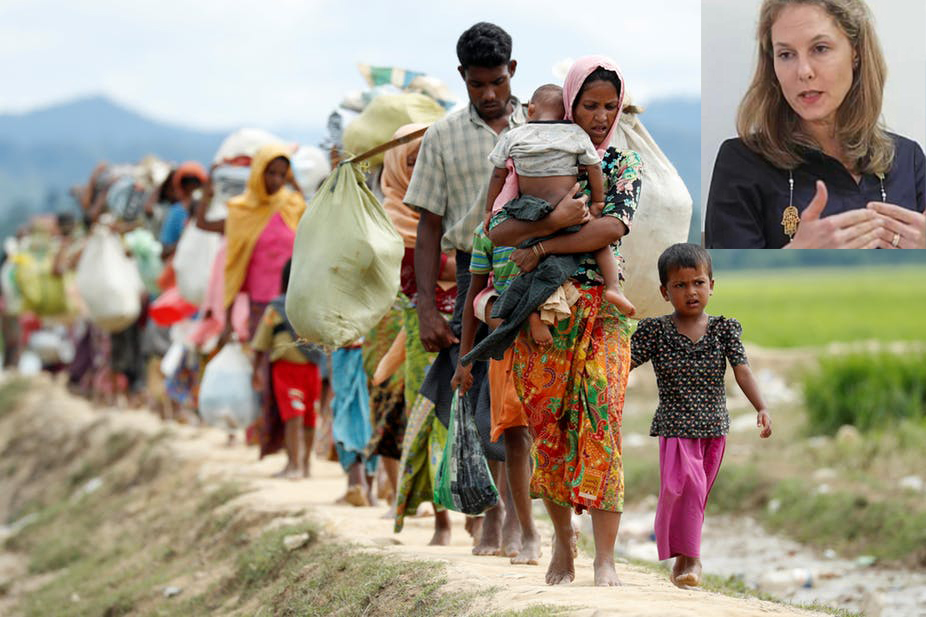Jordanian princess Sarah Zeid recommends for more international attention on Rohingya issue.

![]()
News Desk:
“There are two different tracks. One is political, which is to put pressure on Myanmar, and the other is everyday responsibility to meet the needs of the Rohingyas as well as the host community in Cox’s Bazar. My responsibility is to challenge the international community continuously to do more and to do better. You can always do more and do better,” said Jordanian princess Sarah Zeid, the immediate-past United Nations High Commissioner for Human Rights.
When asked if international funding for the welfare of the Rohingyas would continue if the crisis lingered, the princess said: “I think we have to be afraid that it will not. Look at the world. There are many problems like this.”
Expressing fear that funding from the international community for the welfare of the Rohingya may reduce in the coming years, she also stressed the need for holding those responsible for creating the crisis accountable as soon as possible.
The international community has not done enough to pressure Myanmar into taking back the hundreds of thousands of Rohingya refugees who fled their homes in Rakhine State, the Jordanian princess said while being interviewed at the Bangladesh office of the World Food Program (WFP). At present she is working as an advocate in WFP. She suggested looking for innovative solutions to possible funding issues, such as by involving the private sector and through Islamic financing, and emphasized the need for preventing atrocities similar to the Rohingya crisis from occurring anywhere.
“The Rohingyas are doing much better now than they were in Rakhine,” she said, adding that no human being deserves the treatment the Rohingyas have received in their own country. But the repatriation has to be safe, voluntary and dignified, as everyone has the right to a safe life regardless of where they live, she added.
On the role of WFP in the Rohingya crisis, the princess said they were trying to use their workforce in a manner that benefits both the Rohingya refugees and the host community.